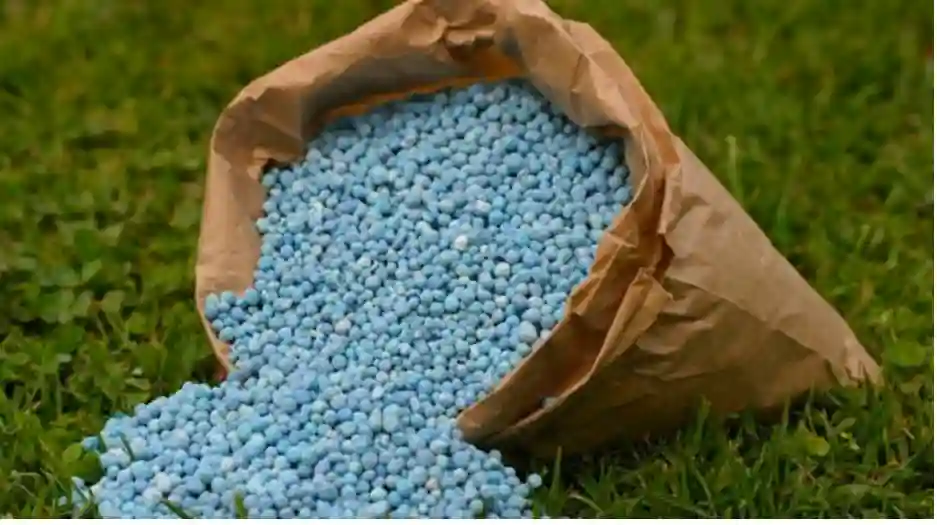Around 23,000 tonnes of fertiliser donated to Zimbabwe by Russia have been blocked by the European Union (EU) due to its agricultural export blockade on Russia. This blockade was implemented in response to the conflict in Ukraine, The Sunday Mail reported. Last year, several developing countries, including Zimbabwe, were supposed to receive a share of 260,000 tonnes of fertiliser from Russia’s Uralchem-Uralkali for free. Malawi and Kenya have already received their share through the United Nations World Food Programme, but Zimbabwe and Nigeria have not due to the EU’s tightening blockade.
The EU has imposed sanctions on Russia, including prohibiting the export of fertiliser, in an attempt to pressure Moscow into resolving its conflict with Ukraine. However, Russia argues that blocking the export of fertiliser to countries in need is hypocritical and goes against the EU’s claim that sanctions do not apply to Russian fertiliser and food exports. Russian exporters also face obstacles and high fees due to the sanctions. In a statement last week, the Ministry of Foreign Affairs of the Russian Federation said 96,000 tonnes of fertiliser are currently stuck in EU ports. Read the statement in part:
As part of the Russia-UN Memorandum on September 7, 2022 . . . Russia took the initiative to send 262 000 tonnes of mineral fertilisers blocked in the ports of Latvia, Estonia, Belgium and the Netherlands as humanitarian aid to the poorest countries . . . Since then, however, only two deliveries have been completed.
The release of three other planned shipments — to Nigeria (34 000 tonnes), Zimbabwe (23 000 tonnes) and Sri Lanka (55 000 tonnes) — has been stalled, despite the fact that all preparatory procedures have been completed.
Russia is unable to pay for services after being cut off from the SWIFT interbank messaging system, and it claims that the blockade of Russian produce at EU ports is illegal. The fertiliser blockade has also affected the UN-brokered Black Sea grain deal between Russia and Ukraine, which aimed to facilitate the delivery of Ukrainian grain to world markets in exchange for removing Western barriers on Russian agricultural exports.
Russia is a major global producer of fertiliser, accounting for a significant portion of global exports of potash, ammonia, and urea. The situation highlights the ongoing tensions and consequences of the conflict between Russia and Ukraine, as well as the impact of international sanctions on agricultural trade.
The blockade will likely affect Zimbabwe’s agriculture sector considering that the southern African country does not produce enough fertiliser on its own. In Zimbabwe, there are several fertiliser-producing companies, including Windmill, Zimbabwe Fertilizer Company (ZFC), Sable Chemical Industries, and Zimbabwe Phosphate Industries (ZimPhos). Windmill is known for producing compound fertilisers with a capacity of approximately 50,000 metric tonnes per year. ZFC is a leading manufacturer of compound fertilisers, ammonium nitrate, and urea, with a production capacity of over 100,000 metric tonnes annually. Sable Chemical Industries specializes in ammonium nitrate production, with a capacity of around 240,000 metric tonnes per year. ZimPhos is involved in the manufacture of phosphate-based fertilisers, but the combined output falls short of the required amounts.
Due to this shortfall in fertiliser production, the government of Zimbabwe has allowed the importation of fertilisers to meet the required amounts. This decision was made to reduce input costs and boost grain production ahead of a farming season that may be affected by adverse El Nino weather conditions. The high prices of fertilisers in the past two years, caused by natural gas price increases and the conflict between Russia and Ukraine, have made it difficult for farmers in Zimbabwe. Therefore, the government suspended import duties on nitrogenous fertiliser this October and will allow the duty-free import of up to 250,000 metric tons of urea and ammonium nitrate. Despite recent improvements in maize production, food insecurity remains a challenge in Zimbabwe, and many households still rely on aid for their food needs.

